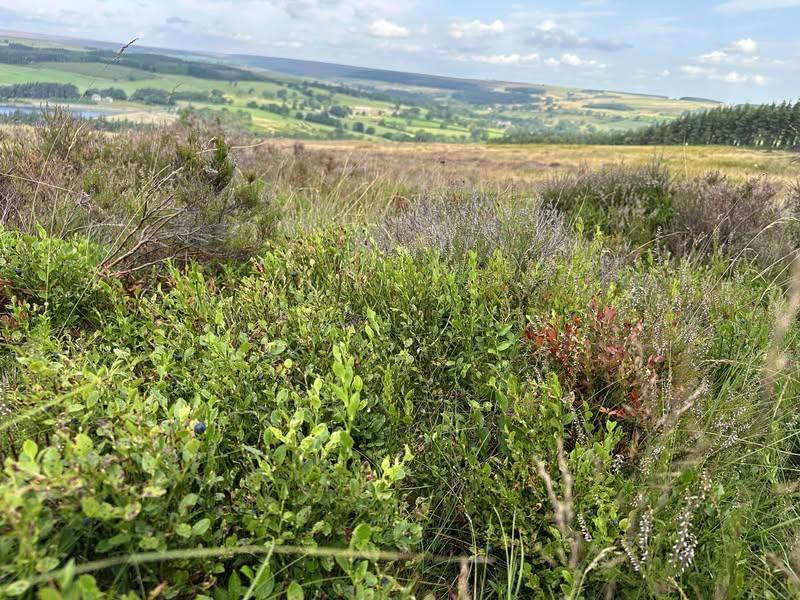
Ever tried 'mucky mouth pie'? There's a secret pleasure hiding on the Dales moors at the moment, one that's good for you and free. Surprisingly few people seem to take advantage of it but I've been caught red-handed. Actually not so much caught, as just red-handed, evidence of this lovely activity.
What is this hidden treat? Bilberrying. Foraging and finding food for free is always good but bilberrying seems particularly rewarding. It might be because I associate it with so many lovely childhood days when our extended family would venture on to a windy hillside, competitively picking the tiny berries and covering our hands in purple dye.
My love of them could also be because they're rarely to be found for sale anywhere so they're extra special and hard to come by. They taste similar to blueberries but slightly tarter and the flavour seems much more intense.
Bilberries grow on low bushes on moorland or the fringes of woodland, often intermixed with heather. At first glance the bush may seem to be empty of berries but gently move aside their springy stalks and you should be able to spot the berries in mid August.
Bilberries are very nutritious, containing plenty of vitamin C and E, as well as being three times richer in anthocyanin compounds (with many health claims) than cultivated blueberries.
Amanda Brown told me about ‘mucky-mouth’ pie - a North Yorkshire tradition that needs to be rejuvenated given it involves baking bilberries in Yorkshire pudding batter.
The ‘mucky-mouth’ refers to the blue tongue you get from eating the berries which are also known as whortleberry, wimberry, blaeberry – any other suggestions?
These mini-blueberries are found in August on low growing shrubs on heathland, moorland or in woodland where acidic soils predominate.
You also have to take the rough with the smooth as there’s nothing from their outward appearance to indicate which bilberries are going to be sweet or the tart ‘face scrunching’ ones which is why it’s best not to eat singularly.
Their fiddliness does make you appreciate the patience that pickers would have needed though, to harvest enough bilberries to make the pies and tarts that were once served at funeral teas in Yorkshire, or devoured by miners (apparently bilberries didn’t go mouldy in humid conditions found in the coal mining pits!).
If picking bilberries amid lovely surroundings doesn’t entice you enough, then think about the health benefits. Apparently the ancient Greeks recognised the medicinal properties of the bilberry, including benefits for eye health. In fact during World War ll, RAF fighter pilots would devour pots of bilberry jam on the grounds that improved their eyesight.
If anyone has any good bilberry recipes we’d love to hear them!
